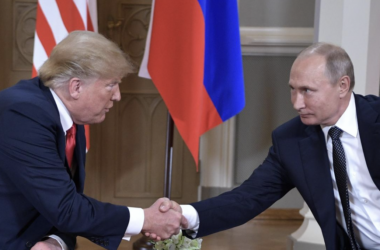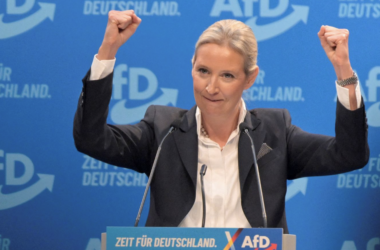The recent push for a European military coalition, independent of the United States, has been framed as a necessary step toward European “strategic autonomy”. Spearheaded by Paris and London, this initiative aims to secure Ukraine and “reduce dependency” on Washington. However, this move is not just unrealistic—it is strategically flawed, politically divisive, and economically unsustainable. Worse still, it risks alienating both the United States and Russia simultaneously, while failing to gain the necessary support from European citizens.
Strategic Folly: Alienating Both the US and Russia
One of the most glaring problems with the EU’s military ambitions is the geopolitical tightrope it attempts to walk. Traditionally, Europe has relied on the United States for security under the NATO umbrella, while maintaining a delicate diplomatic balance with Russia. By attempting to establish a parallel military structure, the EU risks damaging its relationship with Washington without any guarantee of achieving strategic independence.
The United States has long provided Europe with security guarantees, maintaining a presence of approximately 100,000 troops on the continent and supplying the vast majority of military hardware used by European nations. Vice President JD Vance recently stated that Europeans lack the capability and experience to fight a conventional war—a statement that, while provocative, holds the truth. Almost no European country has engaged in a major war for over 30 years, focusing instead on counter-terrorism operations. Without U.S. logistical and intelligence support, European forces would struggle to coordinate large-scale military actions effectively.
At the same time, a more militarized EU is bound to provoke a proportional Russian response. Moscow has long viewed NATO’s eastward expansion as a security threat, and an independent EU force would likely be interpreted as yet another escalation. Given that Russia has already taken action in Ukraine, any further provocation could lead to an even more volatile security environment.
A Military Fantasy: The Readiness Gap
Proponents of an independent EU military often cite the need for European self-reliance. However, they overlook a fundamental issue: European militaries are woefully unprepared for such a transition. While NATO’s European members theoretically have around one million ground troops, the reality is far grimmer.
Most European nations maintain small professional armies, and few have the capability to deploy large numbers of troops rapidly. For instance, while Poland aims to expand its forces to 300,000 troops and spend 6% of its GDP on defense, the actual combat experience of its soldiers remains minimal. Even countries with strong military traditions, like France and the UK, struggle to maintain a force that is both adequately trained and sufficiently equipped.
NATO estimates that European forces would need to grow by 130% in both personnel and equipment to meet current defense plans—and that is with U.S. involvement. Without Washington’s support, the gap becomes even wider. Additionally, European troops are deployed on rotation, meaning the number of soldiers available for a sustained conflict is significantly lower than the theoretical total.
Economic and Logistical Nightmares
Another major obstacle to this EU military ambition is the sheer cost. Defense spending in Europe has already surged due to the war in Ukraine, yet most countries remain far from meeting their NATO commitments of spending 2% of GDP on defense. Creating a functioning EU military independent of the U.S. would require massive financial investments, yet there is little political will among European populations to support such expenditures.
Beyond finances, logistics pose a serious challenge. Chronic underinvestment has left European militaries struggling with outdated infrastructure, inadequate transport networks, and weak command structures. Unlike the United States, which maintains a unified military command, Europe lacks an integrated system for rapid deployment and joint operations. Each national army operates under its own command structure, meaning any EU military force would face significant bureaucratic and operational inefficiencies.
Furthermore, the lack of high-tech air and missile defense systems in Europe further weakens the case for military independence. NATO reports indicate that European forces have only 5% of the air defense needed to protect Eastern and Central European nations. Without an immediate solution to this gap, an EU military coalition would be dangerously exposed.
Lack of Public and Political Support
Even if the strategic and logistical barriers could somehow be overcome, the most significant challenge remains: European citizens do not support this initiative. Public sentiment across the continent remains skeptical about increased military spending and deeper military engagement. Most Europeans prioritize economic national stability social welfare over defense expenditures.
Moreover, many European nations would struggle to gain domestic political approval for military interventions. Germany, for example, requires parliamentary approval for troop deployments, and Italy has already stated that it would only send forces under a UN mandate. The idea of European troops being stationed in Ukraine, possibly engaging directly with Russian forces, is likely to trigger mass opposition across the continent.
Even within EU leadership circles, consensus on military matters is elusive. Countries such as Hungary and Austria, with their traditionally neutral stances, are unlikely to back such an initiative. Eastern European states like Poland and the Baltic nations prioritize direct NATO support over any untested EU-led military project.
The Wrong Cause: Prioritizing War Over Diplomacy
Perhaps the most fundamental flaw in this initiative is its misplaced priorities. Rather than investing in an independent military structure that risks drawing Europe into a broader conflict, the EU should focus on diplomatic efforts and economic stability, including energetic one. The war in Ukraine has already demonstrated that military solutions alone cannot guarantee stability. A EU military coalition, rushed into existence to fill a perceived gap left by the United States, will do little to promote long-term security.
A Reckless Gamble
The idea of an independent EU military force may appeal to certain policymakers eager to project the image of a more autonomous Europe. However, in practice, it is a reckless gamble that Europe cannot afford to take. This initiative alienates both the United States and Russia, lacks the necessary military readiness, places an unbearable economic burden on European nations, and fails to gain the support of European citizens.
Rather than chasing the illusion of “strategic autonomy”, EU leaders should focus on strengthening existing alliances, investing in practical security measures, and prioritizing diplomacy over confrontation. A strong Europe does not mean a Europe that isolates itself militarily. Instead, it means a Europe that works within the structures that could provide security for decades. The EU military dream is not just unrealistic; it is dangerous and counterproductive.




